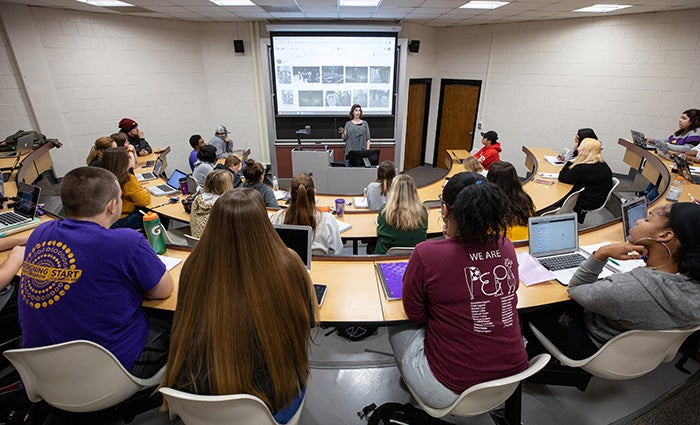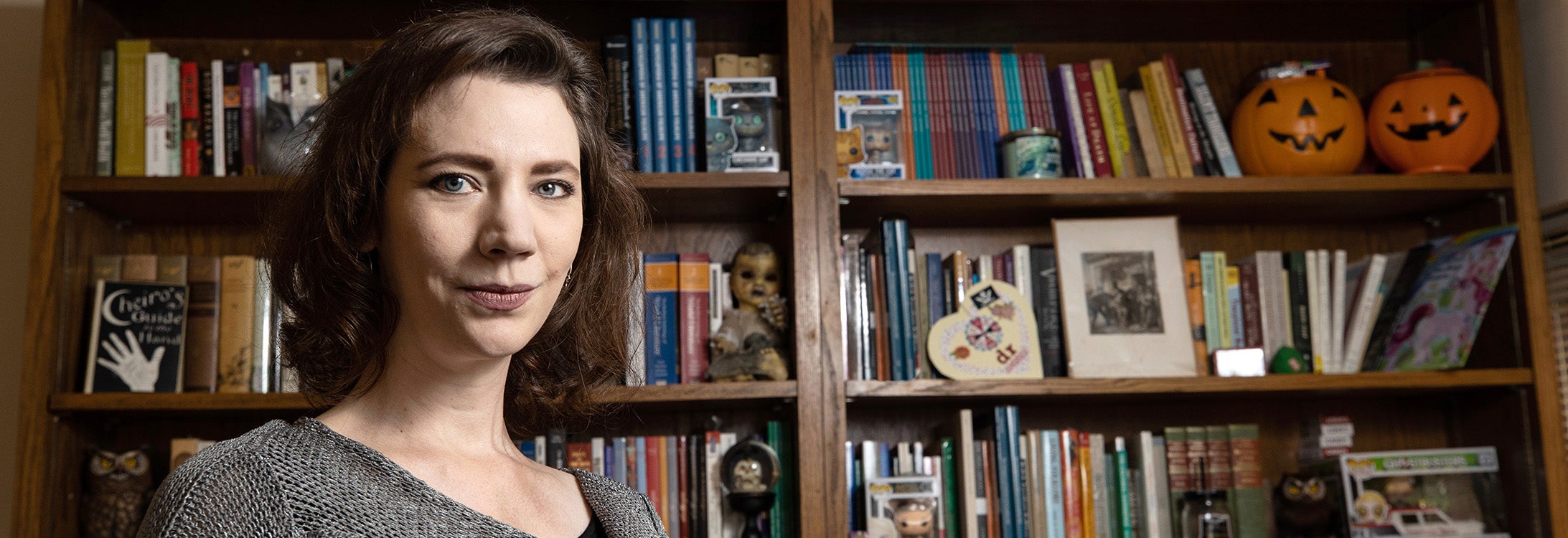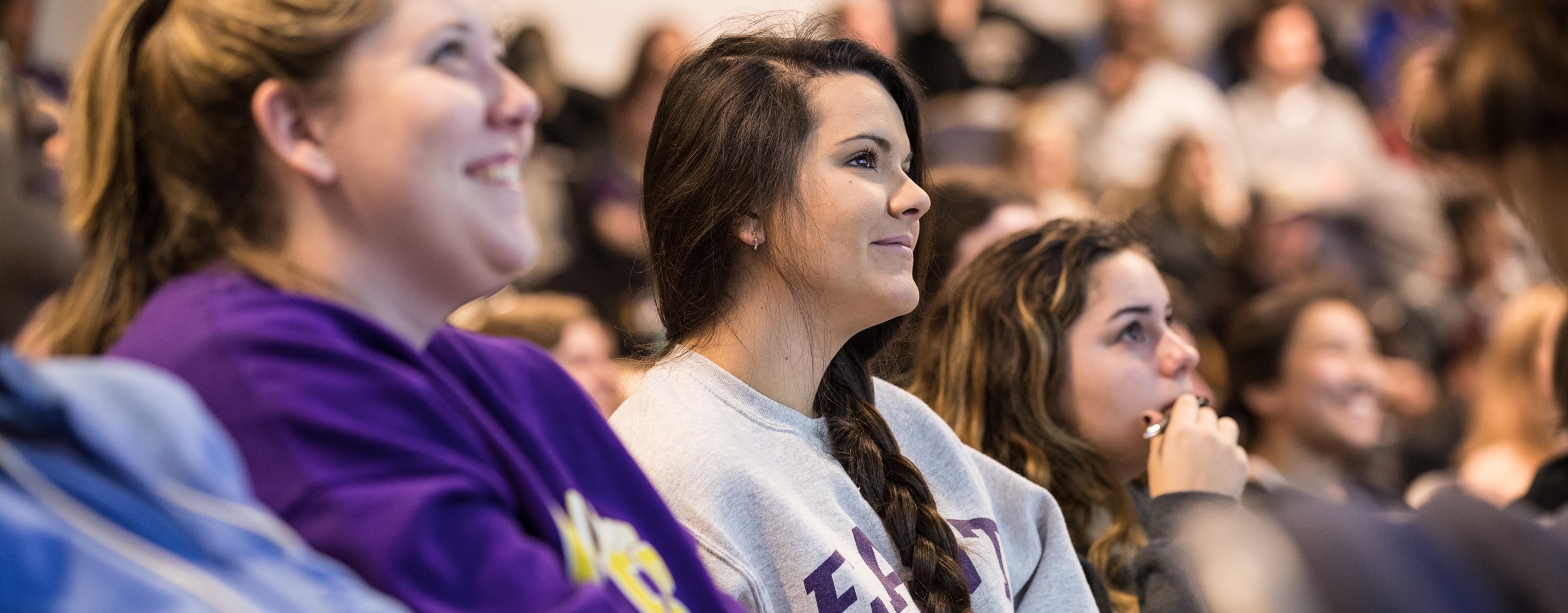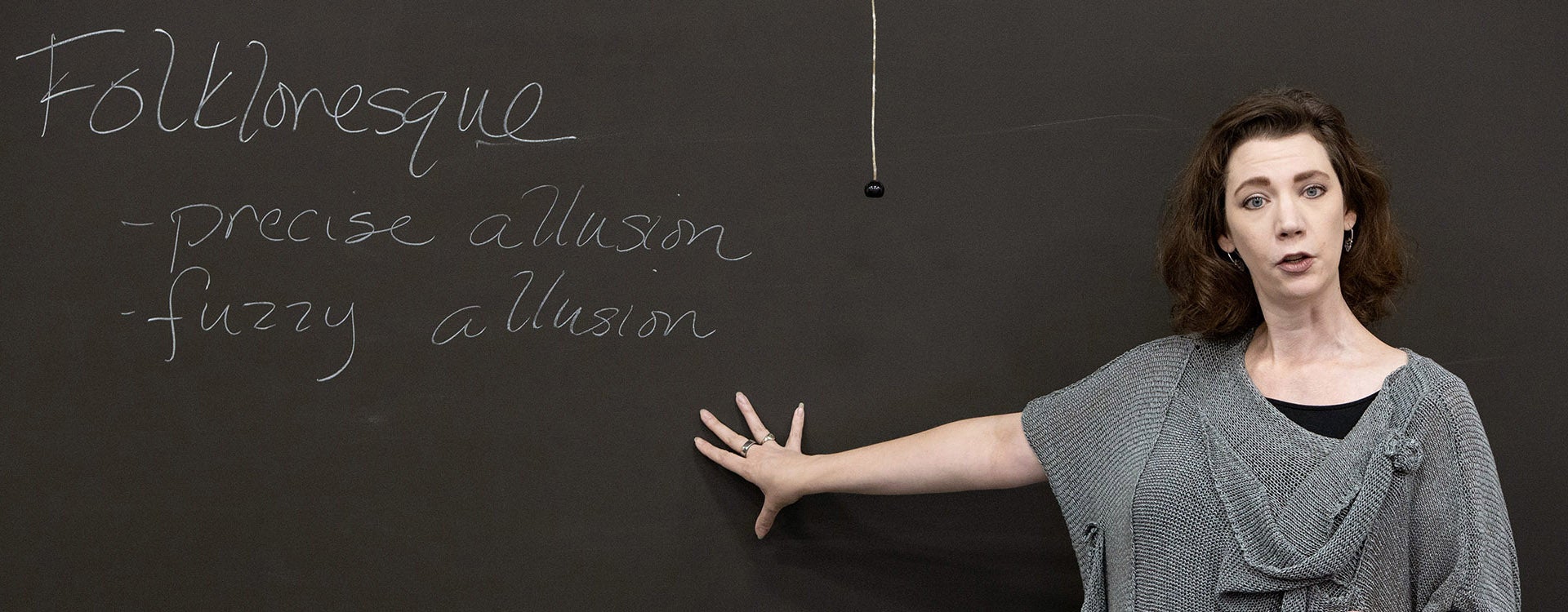SUPERNATURAL
ECU class explores folklore, supernatural narratives
Have you heard bumps in the night in buildings on East Carolina University’s campus? Maybe a door slamming mysteriously in Christenbury Gym. Cold brushes of air in Joyner Library. Children giggling late at night in Messick Theatre.
Like most university campuses, ECU has its share of ghost stories and strange happenings. But ECU also has one thing that many universities do not – a class that studies folklore and the supernatural.
The supernatural class (English 2570) is taught by Dr. Andrea Kitta, an associate professor in the English department who specializes in folklore. Her research interests include vaccines, pandemic illness and Slender Man. Her latest book, “Kiss of Death: Contagion, Contamination, and Folklore,” explores disease as a social issue, how legends and rumors spread fear and ways medical communities can use cultural literacy to effectively work with the public.
Several ghost stories at ECU involve Messick Theatre Arts Center. One of the most popular is narrated by Kitta’s graduate assistant, Jonathan Willett, in this animation. (Animation by Kevin Treadway and illustrations by Rick Glosson)
“I’ve always loved the supernatural. I was super into that stuff when I was a kid. There wasn’t really a way to study the supernatural in academia, so folklore offered me that opportunity,” said Kitta. “This is my dream class. It’s a lot of my own research. I joke about how I trick people into learning because I apply this deep theory and practice and cultural analysis to these fun topics we’re talking about.”
She says the original “Ghostbusters” movie is her favorite partly because seeing the movie was when she first realized her love of the supernatural and academia could be combined.
This is the third year Kitta has offered the class that studies how folklore plays a role in society. Spots in the class fill up quickly. She says her approach is not to talk about whether or not ghosts exist, but why belief in stories about the supernatural are important.
Kitta says learning about and sharing stories of folklore and the supernatural are important because they integrate people into the culture of a place.
“Knowing ghost stories about ECU makes us more in tune to being a Pirate – we have something in common with other people. But then we also share those things, so it gives us a sense of community,” said Kitta. “It not only gives you a sense of community with your group, but over time, when you meet another ECU alum and you ask them about the Cupola or about whatever building is haunted, there is a sense of community that develops.”
The class touches on topics that can be difficult to discuss. She said many stories they study involve violent or sensitive topics like suicide, murder or dark moments in our history such as slavery.
BLOODY MARY

Kitta leads her 8 a.m. supernatural class. The students will host a Ghost Walk on ECU’s campus Oct. 24.
Bloody Mary, the urban legend used to frighten children during sleepovers for decades, is Dr. Andrea Kitta’s favorite. The legend is, if you say Bloody Mary repeatedly in a mirror, she will appear.
“There are all these variations of who Mary was and what happened to her. Sometimes she’s the victim, sometimes she is the murderer. I love that it’s so diverse; every time I hear someone talk about a Bloody Mary story it’s a different version. I love that the story is still happening. It’s been around for decades. If I say something about it in class, everyone knows what I’m talking about. She’s sort of a great equalizer, everyone’s played Bloody Mary, everyone knows about Bloody Mary. Even with international students, they’ve heard of her or know about her.”
“Our discussions can get pretty deep, but it’s done through the lens of the supernatural as a way to talk about it,” said Kitta.
The class also looks at how folklore is used to act as warnings or a way to monitor people’s behavior. There are ghost stories that warn people not to walk alone at night or pick up hitchhikers, and stories of scary forests that keep children from entering dangerous places.
In the class, students look at why stories of the supernatural and folklore play such a large part in cultures across the world.
ECU sophomore Laura Adams is one of 40 students in the class. She is an interior design major from Maryland and said she doesn’t believe in ghosts, but she does believe in other types of paranormal experiences or events.
“Mostly we’ve talked about folklore; what it means and what it actually is. It’s not just ghost stories, although that’s typically the common form we hear of it,” she said.
Adams said it’s hard to discount some experiences that have made it through different cultures over decades or centuries that can’t be explained, even with today’s knowledge and technology.
“There has to be something there that we don’t understand,” she said.
One of the more interesting topics Adams said the class has discussed is sleep paralysis and how, through the centuries, it’s been associated with the “old hag” story – a supernatural being who sits on someone and prevents them from moving.
“We’ve explored the different ways the story has evolved with the introduction of medical technology,” said Adams.
Kitta said approximately 40% of Americans believe in the supernatural, but she thinks that number is low because we are taught not to believe in things like ghosts, so people are hesitant to admit it.
RELATED STORY
Cool classes: 12 unique courses offered at ECU
Adams said the class has piqued her interest in a lot of supernatural matters and the ways of looking at them.
As a class project, the students organize a ghost walk on ECU’s campus each year. They research folklore about ECU and Greenville and select five stories to include on the walk. They interview people with connections to the stories, advertise the event, plan the walk and participate as storytellers.
“They (the students) always come up with different things and I’m like, ‘That’s a great way of doing that,’” said Kitta.
She said three of the most popular stories that are almost always selected for the ghost walk involve Cotten Residence Hall, Joyner Library and Messick Theatre.
When asked about the most common question she gets from students, Kitta laughed and said, “‘Am I going to have to use a Ouija board?’”
The answer is, no.


